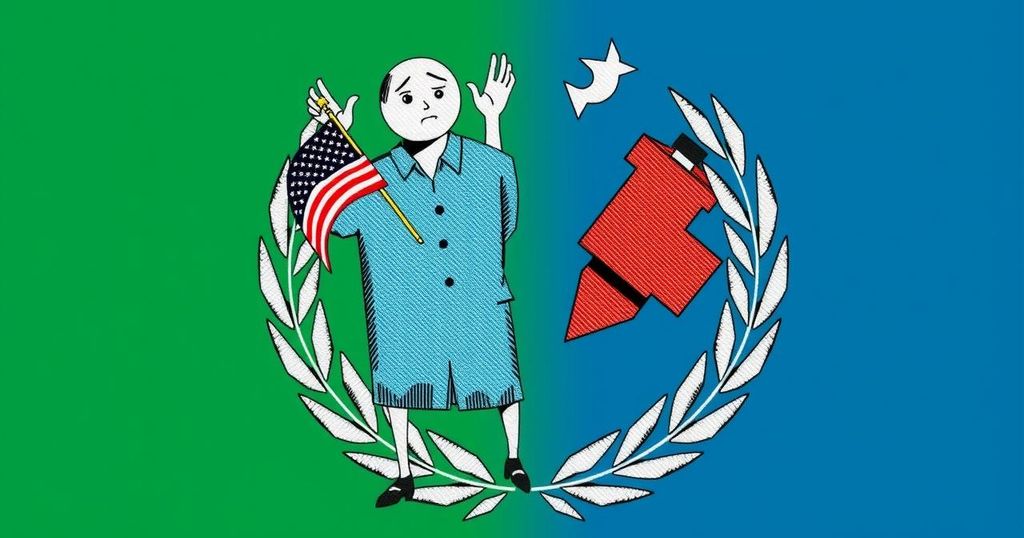COP29 concluded with a $300 billion annual climate finance target for developing nations, but many officials from these countries criticized the figure as insufficient compared to the $1.3 trillion estimated as necessary. The agreement, which replaces an expiring framework from 2009, has triggered outrage and feelings of betrayal among developing nations, as they struggle to achieve resilience against increasingly severe climate events. Moving forward, discussions will continue at the next COP conference in Brazil.
The recent COP29 climate summit in Azerbaijan has resulted in significant controversy among developing nations regarding the pledged global finance target of $300 billion per year until 2035. This funding, while an increase from previous commitments, falls drastically short of the $1.3 trillion that experts estimate is necessary annually to adequately address climate change impacts in vulnerable countries. Developing nations have expressed their dissatisfaction, calling the allocation insufficient and insulting, considering their dire needs amid a backdrop of worsening climate-related disasters.
The agreement was greeted with anger and frustration from representatives of the Global South, who highlighted that the newly pledged amount is actually lower than previously agreed figures when adjusted for inflation. Indian negotiator Chandni Raina termed the commitment “abysmal,” while other delegates from countries such as Cuba and Bolivia condemned it as an example of “environmental colonialism.” These sentiments reflect a broader disappointment among developing nations, who feel marginalized and neglected in key discussions that directly impact their survival and resilience against climate change.
Conversely, some delegates from the Global North have portrayed the outcome as a notable advancement in climate finance, with the EU’s chief negotiator presenting the target as both ambitious and attainable. However, critics stress that the structure of the deal may lead to increased borrowing for developing nations, potentially exacerbating debt rather than providing the necessary support through grants.
At the summit, Germany and France made notable commitments towards adaptation funding, while the overall response of developed countries remains scrutinized, with substantial unfulfilled pledges previously made. Experts have warned that without deeper engagement and transparency from major emitters regarding emissions reductions, the financial aid promised will fall short of what is needed for effective adaptation measures.
Looking ahead, the next COP meeting in Belem, Brazil is expected to address the feasibility of a global carbon trading system and the path to achieving the targeted $1.3 trillion in assistance. A major focus will be whether nations can meet their obligation to share their revised climate strategies, a process that many fear may not materialize effectively given current trends.
The overarching message from COP29 has been one of strained relations between developed and developing nations around climate funding, emphasizing the urgent need for a more equitable and sincere approach to financial assistance that prioritizes grants over loans, and genuine commitment to curbing emissions on behalf of richer countries.
The COP29 climate summit gathered stakeholders from around the globe to discuss financing efforts aimed at combating climate change, particularly in countries most vulnerable to its impacts. With increasing climate-related disasters being reported worldwide, the urgency for action is paramount. The $300 billion annual target set at COP29 is meant to address adaptation and resilience building in developing nations, amidst severe criticisms regarding its adequacy. Historic disparities in responsibilities between the Global North and South unfolded through negotiations, as developing nations assert their needs for substantial financial and technical support from wealthier nations. Understanding the context of past commitments and actual funding flows is crucial to grasp the ongoing frustrations among poorer nations in light of emerging climate realities.
In summary, COP29 has showcased the stark divide between developed and developing nations regarding climate finance. The $300 billion pledge, while a nominal increase, has been condemned by many as inadequate when compared to the estimated $1.3 trillion needed annually. The tensions have highlighted the necessity for a shift towards more permanent funding mechanisms in the form of grants and a meaningful commitment from wealthy nations to reduce their emissions. With the next COP meeting on the horizon, the international community faces a critical juncture to either strengthen or further undermine global efforts to combat climate change.
Original Source: www.voanews.com






